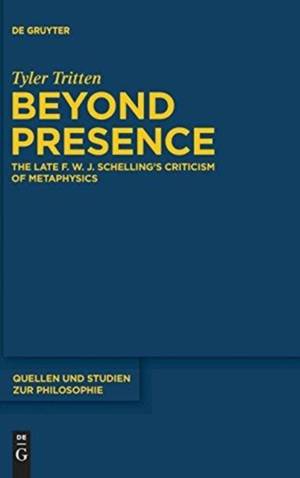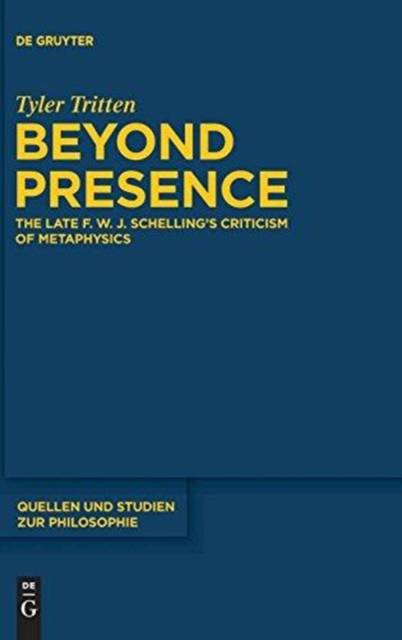
Je cadeautjes zeker op tijd in huis hebben voor de feestdagen? Kom langs in onze winkels en vind het perfecte geschenk!
- Afhalen na 1 uur in een winkel met voorraad
- Gratis thuislevering in België vanaf € 30
- Ruim aanbod met 7 miljoen producten
Je cadeautjes zeker op tijd in huis hebben voor de feestdagen? Kom langs in onze winkels en vind het perfecte geschenk!
- Afhalen na 1 uur in een winkel met voorraad
- Gratis thuislevering in België vanaf € 30
- Ruim aanbod met 7 miljoen producten
Zoeken
€ 418,95
+ 837 punten
Omschrijving
This book provides the English-speaking world with a comprehensive account of the still largely unknown work of Schelling's philosophy of mythology and revelation. Its achievement, however, is not archival but philosophical, elucidating the relation between Schelling and onto-theology. It explains how Schelling dealt with the problem of nihilism and onto-theology well before Nietzsche and Heidegger, arguing that Schelling surpasses onto-theology or the philosophy of presence a century prior to Heidegger. Overall, the author provocatively suggests that Heidegger is perhaps Schelling's genuine heir and by comprehensively interpreting Schelling's multifaceted late lectures he analyzes issues as diverse as the Ancient relation between thinking and Being, the Medieval debate between voluntarism and intellectualism, the overcoming of modern subjectivism and German Idealism as well as many themes in contemporary philosophy. The presentation is systematic rather than thematic, following Schelling's ages of the world through the Past, Present and Future. The results are daring, departing from the half-century long canonical reading of the late Schelling since Walter Schulz. This book is valuable for Schelling-scholars, historians of philosophy and theologians alike.
Specificaties
Betrokkenen
- Auteur(s):
- Uitgeverij:
Inhoud
- Aantal bladzijden:
- 385
- Taal:
- Engels
- Reeks:
- Reeksnummer:
- nr. 111
Eigenschappen
- Productcode (EAN):
- 9781614512110
- Verschijningsdatum:
- 17/08/2012
- Uitvoering:
- Hardcover
- Formaat:
- Genaaid
- Afmetingen:
- 156 mm x 234 mm
- Gewicht:
- 716 g

Alleen bij Standaard Boekhandel
+ 837 punten op je klantenkaart van Standaard Boekhandel
Beoordelingen
We publiceren alleen reviews die voldoen aan de voorwaarden voor reviews. Bekijk onze voorwaarden voor reviews.









